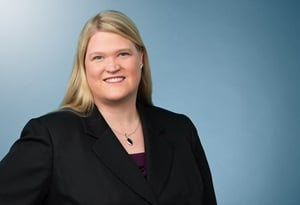Supreme Court Decides Axon Enterprises, Inc. v. FTC and SEC v. Cochran
On April 14, 2023, the U.S. Supreme Court decided two consolidated cases — Axon Enterprises, Inc. v. FTC, No. 21-86, and SEC v. Cochran, No. 21-1239 — holding that federal district courts have jurisdiction to hear extraordinary claims challenging the constitutionality of the structure of the Securities and Exchange Commission (SEC) and the Federal Trade Commission (FTC) (the Commissions).
Congress established the SEC to protect investors in securities markets and the FTC to promote fair competition. Congress empowered the Commissions to address statutory violations in these areas through agency proceedings, which are typically held before an administrative law judge (ALJ) and are subject to review by federal courts of appeals.
In the two consolidated cases, the Commissions initiated separate agency actions against the respondents, who in turn filed suits in federal district court seeking to enjoin the agency proceedings on constitutional grounds. Both respondents claimed that some fundamental aspect of the Commissions’ structure and use of ALJs is unconstitutional, including that ALJs are insufficiently accountable to the President, so as to violate separation of powers. The respective district courts dismissed the claims for lack of jurisdiction with the Ninth Circuit affirming and the en banc Fifth Circuit reversing. The Court accepted certiorari to determine whether federal district courts have jurisdiction to hear these suits or whether the Securities Exchange Act and FTC Act review schemes displace district court jurisdiction over the claims.
The Court held that the Securities Exchange Act and the FTC Act do not displace district courts’ federal question jurisdiction to hear the respondents’ claims. The Court relied on three considerations identified in Thunder Basin Coal Co. v. Reich, 510 U.S. 200 (1994), to determine whether Congress intended to limit district court jurisdiction to hear these types of claims, concluding that all three factors weighed against such limitation.
First, preclusion of district court jurisdiction would “foreclose all meaningful judicial review” because post-hoc review of an agency decision by a federal court of appeals could not remedy the harm asserted by respondents — being subjected to an illegitimate agency proceeding in the first instance. Second, the challenge raised by the respondents was “collateral” to any Commission orders or rules from which review might be sought. And finally, the respondents’ constitutional questions fell outside of the Commissions’ expertise. Accordingly, the Court concluded that Congress did not intend to limit district court jurisdiction to hear these types of claims, and respondents could proceed with their suits in district court.
Justice Kagan delivered the opinion of the Court, in which Chief Justice Roberts and Justices Thomas, Alito, Sotomayor, Kavanaugh, Barrett, and Jackson joined. Justice Thomas filed a concurring opinion. Justice Gorsuch filed an opinion concurring in the judgment.
The material contained in this communication is informational, general in nature and does not constitute legal advice. The material contained in this communication should not be relied upon or used without consulting a lawyer to consider your specific circumstances. This communication was published on the date specified and may not include any changes in the topics, laws, rules or regulations covered. Receipt of this communication does not establish an attorney-client relationship. In some jurisdictions, this communication may be considered attorney advertising.



